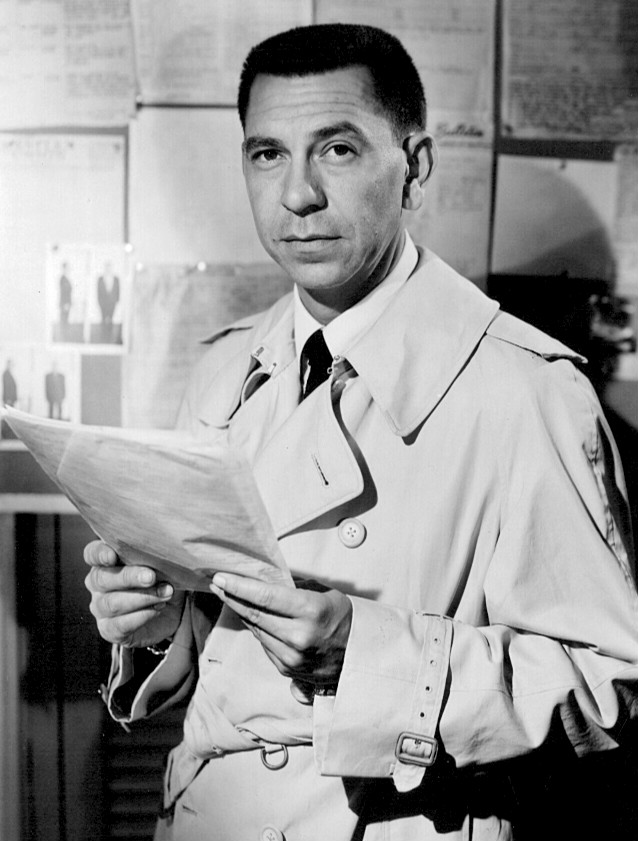In the annals of entertainment history, certain figures stand out not just for their talent, but for their ability to shape and redefine entire genres. One such figure is Jack Webb, a man whose legacy is deeply intertwined with the golden age of radio, the emergence of television, and the birth of a cultural phenomenon that continues to captivate audiences today. Known for his iconic voice, signature deadpan delivery, and his portrayal of the no-nonsense police detective Joe Friday, Jack Webb left an indelible mark on the world of entertainment and law enforcement procedural dramas.
Early Life and Beginnings

Born on April 2, 1920, in Santa Monica, California, John Randolph Webb (later known as Jack Webb) grew up in a world just beginning to explore the possibilities of mass media. Raised by his mother after his parents' divorce, Webb developed an early interest in radio and acting. He honed his vocal skills by mimicking radio announcers, and this fascination with the medium led him to pursue a career in entertainment.

Webb's breakthrough came when he landed a role on a popular radio show titled "Pat Novak for Hire" in 1946. This marked the beginning of his association with radio dramas, where his distinctive voice and ability to convey emotions through tone and inflection set him apart. His experience in radio not only shaped his performance style but also laid the foundation for his later success on television.
Dragnet: Shaping Television History
While radio had been Webb's initial platform, his transition to television is what truly propelled him to stardom. In 1951, he created "Dragnet," a police procedural television series that would forever change the landscape of crime dramas. The show, which initially began as a radio program before making the jump to television, aimed for a level of realism previously unseen in the medium.
Webb's portrayal of Sergeant Joe Friday, a methodical and dedicated police detective, became emblematic of the no-nonsense approach to law enforcement. Friday's catchphrase, "Just the facts, ma'am," encapsulated the character's commitment to truth and objectivity in solving crimes. Webb's meticulous attention to detail extended to the show's production as well. He employed real police officers as technical advisors and drew inspiration from actual case files, lending the show an air of authenticity that resonated with audiences.
The Webb Touch

One of Jack Webb's most significant contributions was his unique directorial style. He often used a "semi-documentary" approach in his work, blending elements of realism with dramatic storytelling. This style was characterized by its use of voiceover narration, procedural accuracy, and a focus on the procedural aspects of crime-solving. Webb's direction gave audiences a sense of being right alongside the detectives as they tackled cases, a technique that would later influence the development of other crime dramas.
Beyond his work in "Dragnet," Webb's influence extended to other projects he worked on. He was a pioneer in using multi-track recording technology, allowing him to enhance the audio quality of his shows. This technical innovation contributed to the immersive experience of his programs, setting a standard for sound production in the industry.
Cultural Impact and Legacy

"Dragnet" was not only a television hit but also a cultural phenomenon that influenced popular perception of law enforcement and detective work. The show's portrayal of police work became a touchstone for subsequent crime dramas, inspiring a wave of procedural shows that continue to dominate television schedules. Its no-nonsense approach to storytelling and its emphasis on accuracy left an enduring mark on the genre.
Jack Webb's legacy also includes his dedication to realism in his work. His commitment to accurately depicting police procedures and the challenges faced by law enforcement officers resonated with audiences and earned him respect from actual law enforcement agencies. The Los Angeles Police Department even made Webb an honorary sergeant in recognition of his positive portrayal of the police force.
Challenges and Later Career

While "Dragnet" brought Webb immense success, it also posed challenges. The show's rigidity in portraying the police department drew criticism from some quarters, as it failed to address larger societal issues and sometimes appeared overly simplistic. Additionally, Webb's perfectionism and insistence on maintaining creative control occasionally led to conflicts with others in the industry.
In the latter part of his career, Webb continued to experiment with different projects. He produced and starred in "Emergency!" a medical drama that focused on paramedics and emergency medical technicians. The show was lauded for its realistic portrayal of emergency medical services and marked another example of Webb's commitment to authenticity.
Personal Life and Legacy

Outside of his professional endeavors, Webb's personal life was marked by various marriages and relationships. He married actress and singer Julie London in 1947, but the marriage ended in divorce in 1953. He later married Dorothy Towne in 1958, and the couple had two children together before divorcing in 1972. Webb's personal life remained relatively private, and he often shied away from media attention.
Tragically, Jack Webb passed away on December 23, 1982, at the age of 62 due to a heart attack. His contributions to entertainment and his impact on the crime drama genre continue to be celebrated and analyzed. His influence is evident in the numerous procedural shows that followed, each owing a debt to his commitment to realism and authenticity.
In Conclusion

Jack Webb's legacy as a trailblazer in both radio and television cannot be overstated. His creation of "Dragnet" and his portrayal of Joe Friday left an indelible mark on the entertainment industry and law enforcement procedural dramas. Through his commitment to accuracy, attention to detail, and distinctive directorial style, Webb set the stage for the evolution of crime dramas on both the small and big screens.
As television and storytelling techniques continue to evolve, Jack Webb's contributions remain a benchmark for aspiring creators in the crime drama genre. His ability to capture the essence of police work, convey authenticity, and engage audiences through his unique style ensures that his legacy lives on, influencing generations of storytellers to come.




